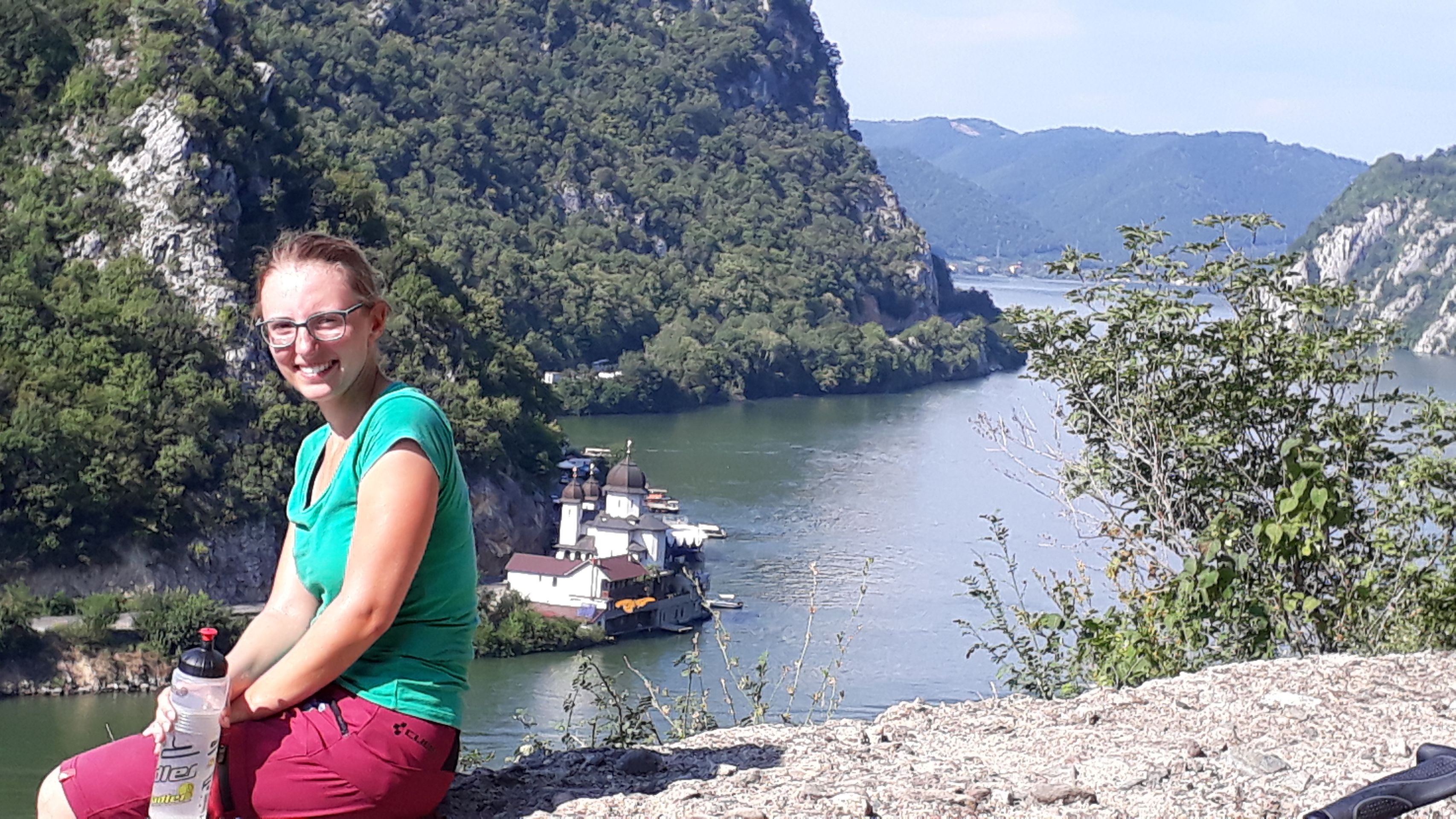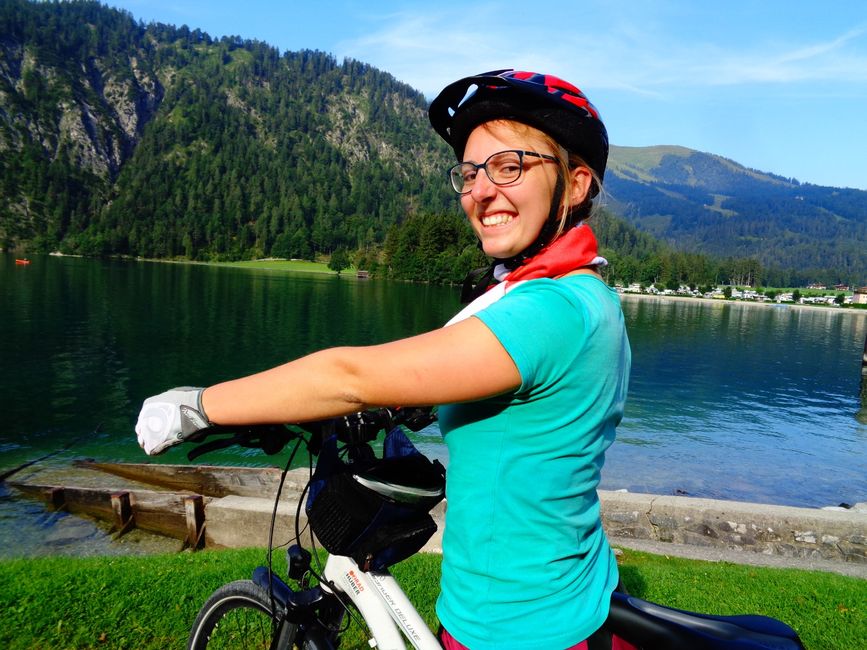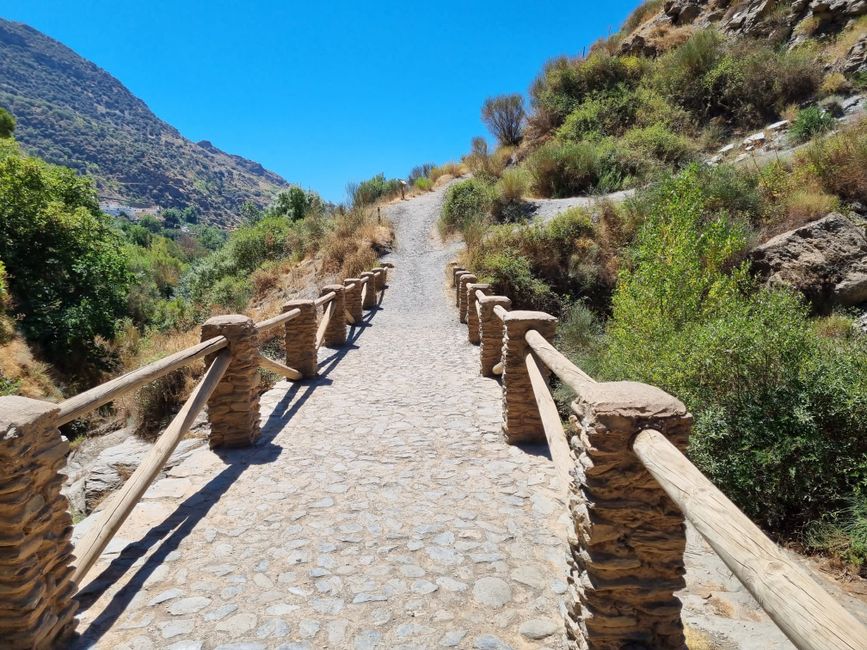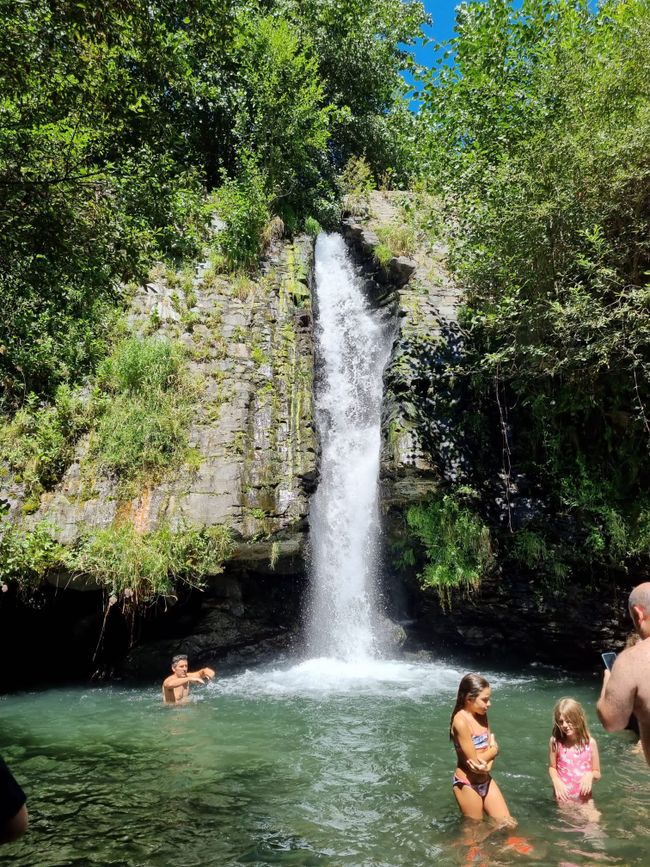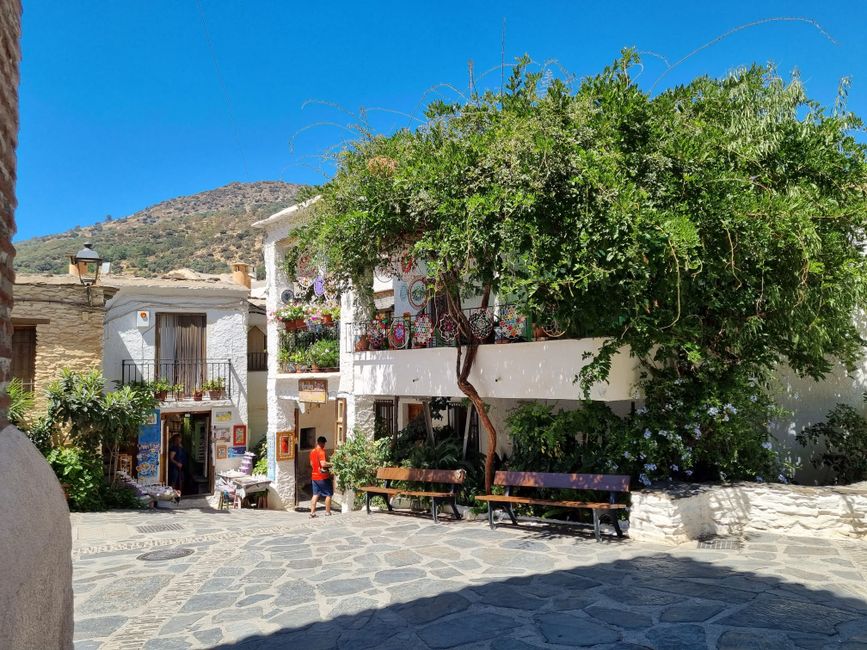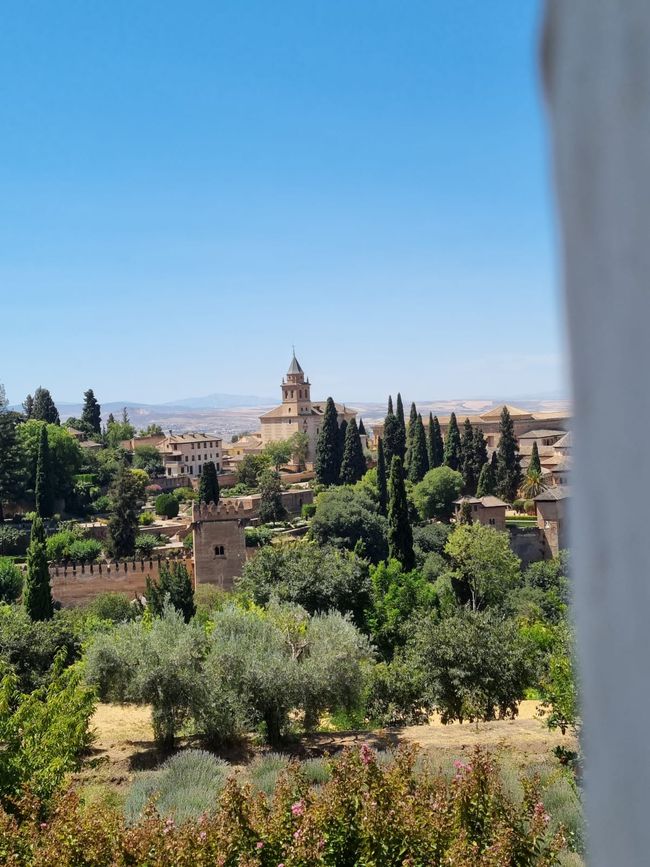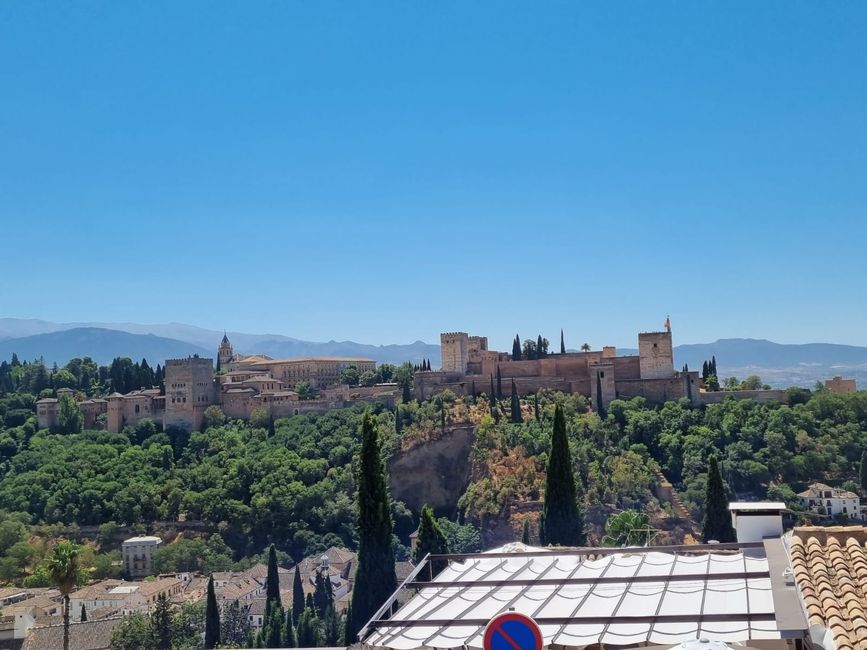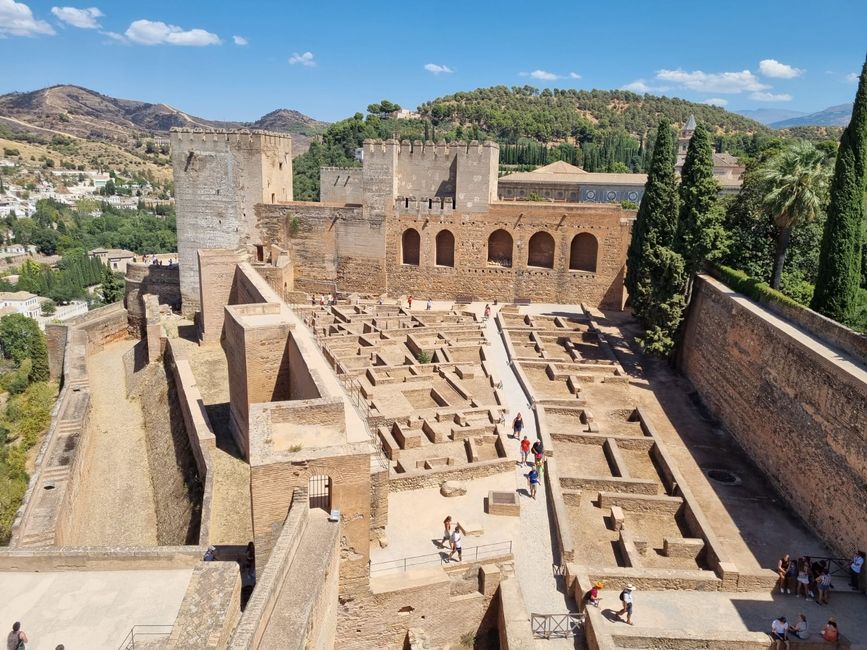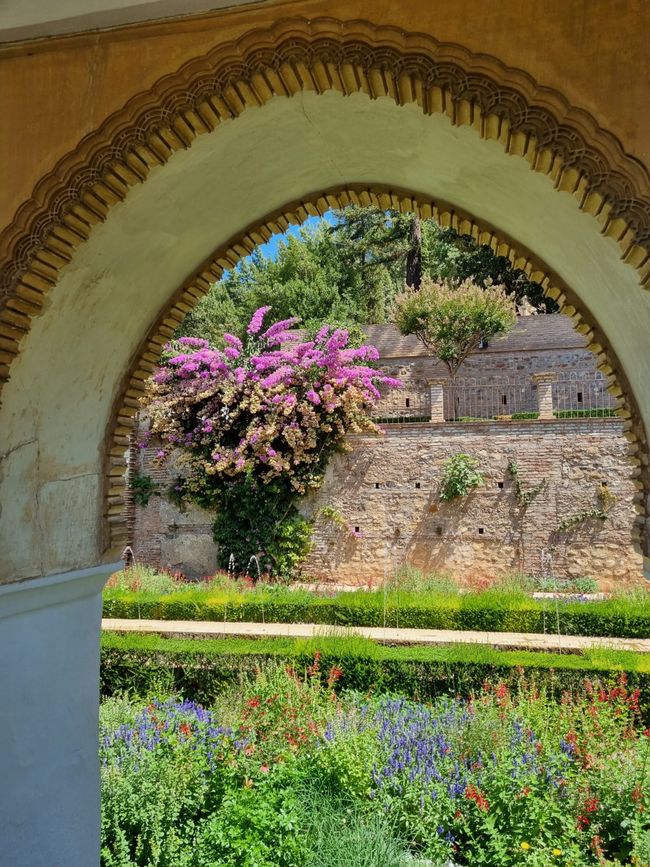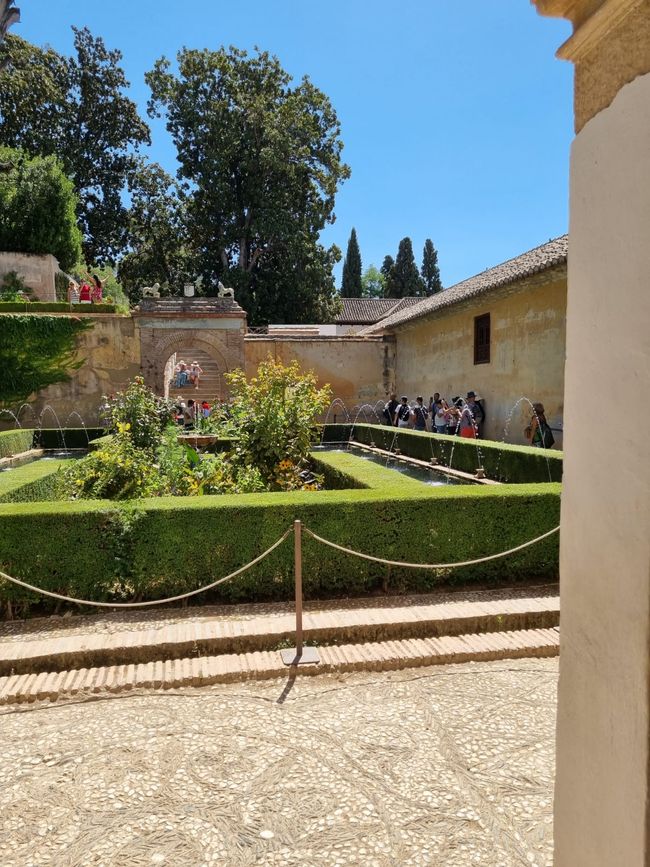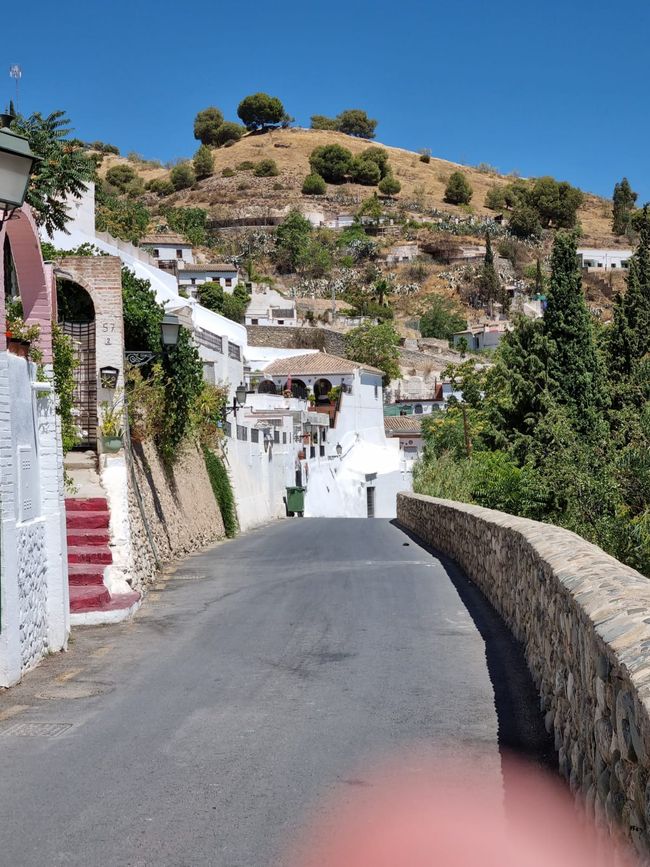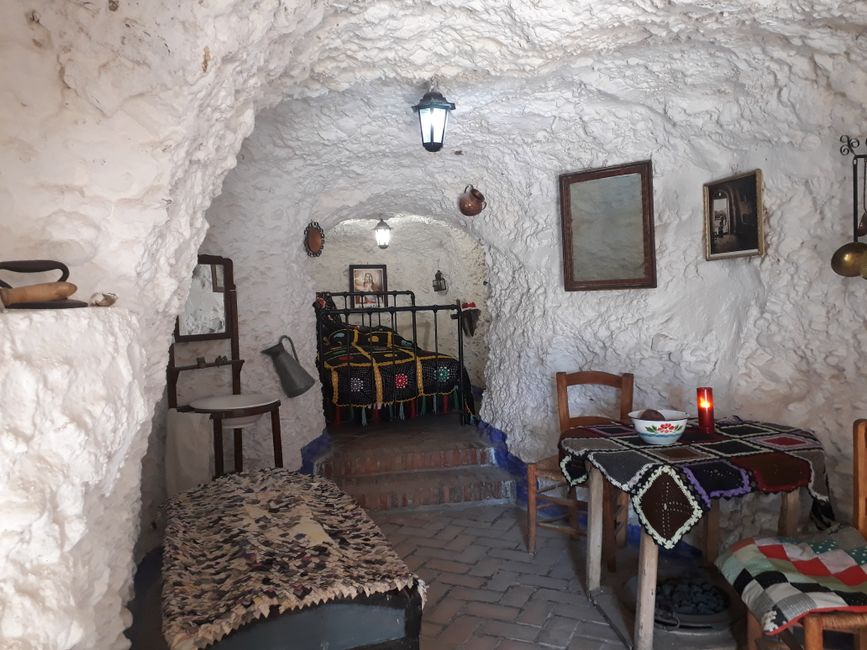Andalusia Trip 3: Granada and Sierra Nevada
Cyhoeddwyd: 31.08.2022
After several days at the sea, our path led us through the mountains of Sierra Nevada to Granada.
The original plan was to drive to Pampaneira by car and hike from there to Bubión and Capileira. However, upon arrival in Papaneira after a winding drive, we noticed that it was too hot to hike at 38°C, even though we were in the mountains.
Therefore, we followed the dusty dry path to a bridge over a surprisingly water-rich river and then walked along it through the undergrowth. It was like being in a different world: while we had mostly encountered dryness and drought, here the river flowed quickly, leaving lush plants growing abundantly on the roadside. Julius eventually discovered a bay with a waterfall, where others were even swimming. However, since we didn't have swimwear with us, we contented ourselves with wading in as far as our shorts allowed.
After this excursion, we took a closer look at the truly beautiful village of Pampaneira: it was built into the hillside, with white-washed houses, cobbled alleyways crossed by small canals, a church in the center providing shade, numerous shops and restaurants offering their wares to the still numerous tourists. A beautiful place that is definitely worth a visit, even with the many tourists!
On the further way to Granada, we picked up hikers who had done the hike we had originally planned and were exhausted.
In Granada itself, we explored it over two days. One thing upfront: we couldn't visit the main attraction, the Alhambra, completely, as tickets for the Nasris palaces (which are part of the Alhambra) were already sold out a week in advance and we tried our luck only 3 days before. However, the Alhambra consists of the Generalife, a beautiful garden with many Moorish elements at the foot of the Sierra Nevada, the Palace of Charles V (I think) and the Alcazaba itself. We were able to see these elements with the spontaneously available ticket. The Alcazaba and the palace were not so incredibly spectacular, but the gardens were definitely worth the money.
Otherwise, we marveled at the Albaicín neighborhood, from where we had a beautiful view of the Alhambra and the rest of the old town. What is fascinating about Granada is that it has so many different facets. In one corner, you can feel the Arabic influence, in another, a Christian flair, a few hundred meters further, you find yourself in an average city of the 21st century, and then again in a small mountain village. In Sacromonte, we visited a museum about the cave dwellings, where people lived and worked until the 20th century, mainly because of the intense heat. It was small, but good. Upon request, we received a very interesting information booklet about life in the caves, the geography, flora and fauna, and the flamenco, which was very well presented to the museum visitor in an extra exhibition with old photos and film footage. We also accidentally discovered a small shop with self-made glass art and photographs that we were absolutely thrilled with. In another location, now more touristy, we discovered another noteworthy store: it offered incense in innovative variations and perfumes. These products could be tested in a nicely furnished courtyard.
We ate many dishes that we didn't know and there were always delicious tapas served. The local beers are not to be despised either. And for the first time, I even liked olives!
Ateb
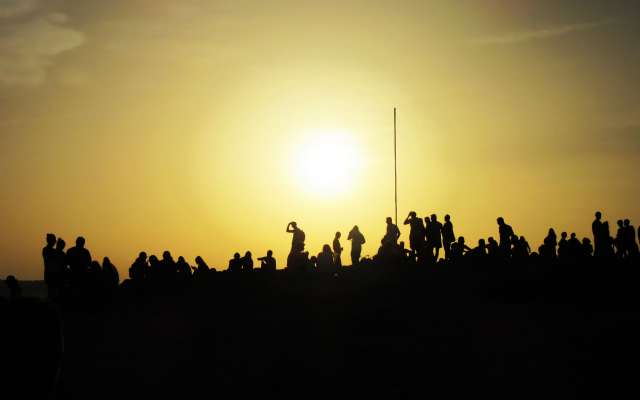
Adroddiadau teithio Sbaen
